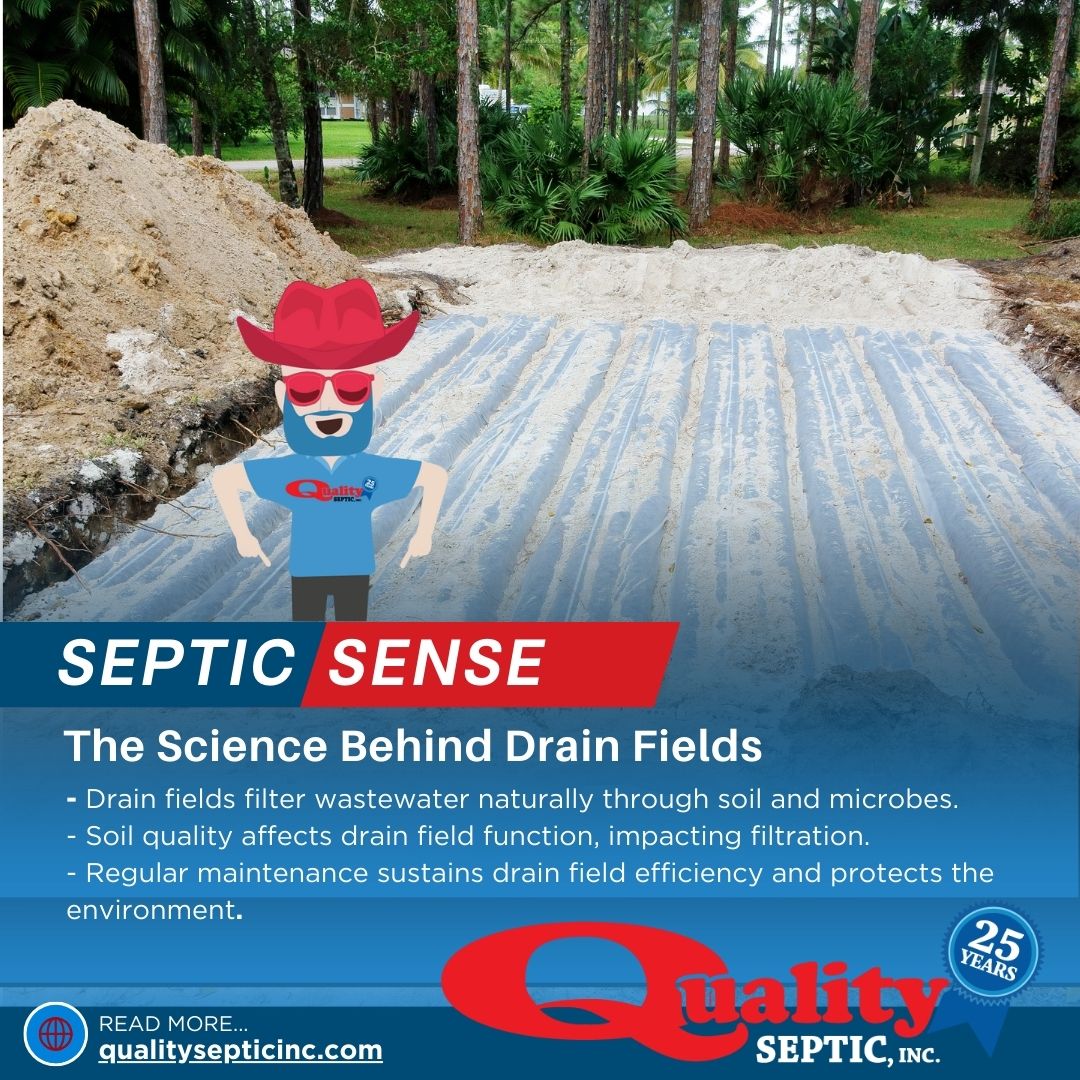At Quality Septic Inc., we believe in empowering homeowners with knowledge to better understand their septic systems. Today, we’re delving into the fascinating world of drain fields, uncovering the science behind these crucial components of your septic system.

What is a Drain Field?
A drain field, also known as a leach field or absorption field, is an essential part of a septic system responsible for the final stage of wastewater treatment. After wastewater leaves the septic tank, it flows into the drain field, where it undergoes further purification before returning to the environment.
How Does it Work?
The science behind drain fields revolves around the natural processes of filtration, absorption, and microbial action. When wastewater enters the drain field, it percolates through layers of soil and gravel. These layers act as a natural filter, removing impurities and pathogens from the water.
As the wastewater infiltrates the soil, beneficial microorganisms break down organic matter, converting it into harmless byproducts. This biological activity plays a crucial role in cleansing the wastewater and preventing contamination of groundwater and surface water sources.
The Importance of Soil Composition
The success of a drain field depends heavily on the soil’s composition and permeability. Ideally, the soil should be well-draining to allow for efficient wastewater filtration and absorption. Factors such as soil texture, structure, and porosity influence its ability to facilitate these processes.
Quality Septic Inc. emphasizes the importance of conducting soil tests prior to installing a drain field. By assessing soil characteristics such as texture, infiltration rate, and groundwater depth, we can determine the optimal location and design for your drain field, ensuring long-term functionality and environmental protection.
Maintenance and Preservation
Proper maintenance is essential for preserving the functionality and longevity of your drain field. Quality Septic Inc. recommends regular inspections and pumping of the septic tank to prevent solids from clogging the drain pipes and infiltrating the soil. Additionally, practicing water conservation and avoiding the disposal of harmful substances down the drain can help maintain the balance of microbial activity in the soil.
Understanding the science behind drain fields is key to appreciating their vital role in wastewater treatment and environmental stewardship. At Quality Septic Inc., we’re committed to providing homeowners with the knowledge and resources they need to care for their septic systems effectively.
If you have any questions about drain fields or need assistance with septic system maintenance, don’t hesitate to contact Quality Septic Inc. Our team of experts is here to help you ensure the health and functionality of your septic system for years to come.

